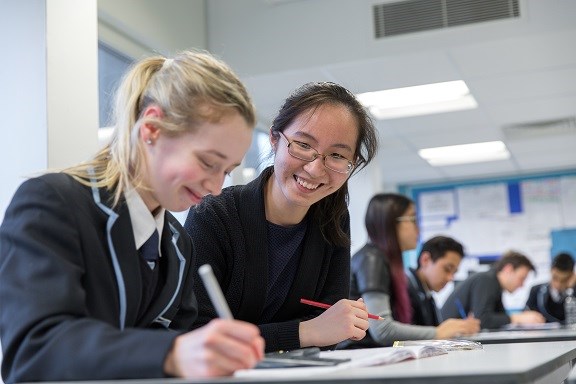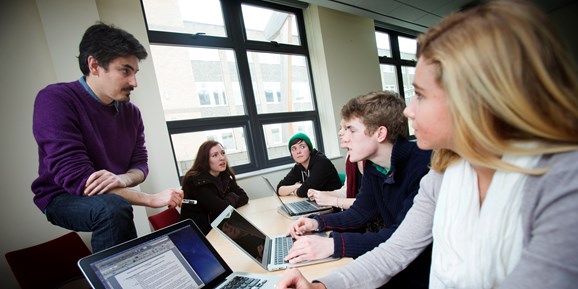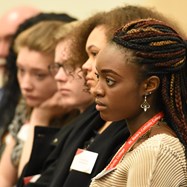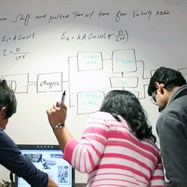Building on social capital
12 March 2018
As the Higher Education Statistics Agency publishes its latest figures on the number of students dropping out of university, Tom Murphy, Policy Analyst in admissions and access, discusses the work Russell Group universities do to support students and encourage them to succeed.
Following the launch of the Office for Students (OfS), the Director for Fair Access and Participation is turning his mind to his new brief, with a renewed focus on how students from under-represented backgrounds can “get on” once at university as well as how they can “get in”.
Yesterday saw the release of the annual non-continuation data for universities across the UK. The data on drop-out rates for students from low participation neighbourhoods is reported separately, providing a valuable insight into the barriers these students face in completing their courses and how they are supported to do overcome them.

The data shows that overall Russell Group universities have very low non-continuation rates (only 3%). For students from low participation neighbourhoods, non-continuation at our universities stands at just over 4%, which is half the average for students from the same backgrounds across the rest of the higher education sector.
The data reflects the commitment our universities continue to make to ensure students from all backgrounds are supported to succeed on their courses and after graduation.
In 2018-19, Russell Group members in England alone will invest £37 million in supporting success and progression for disadvantaged and under-represented students – with investment in this area more than trebling over the past five years.
This support takes many forms and begins before the start of the first academic year with pre-arrival strategies to help prepare students and ensure a smooth transition from school to higher education.
For example, Durham University’s Academic Skills Programme provides workshops, one-to-one support and online resources to help students develop the skills they need to succeed before and during their study at university. King’s College London’s Disability Advisory Service hosts a two-day residential transition event for incoming students with long-term mental health conditions or who are on the autism spectrum.
Once at university, students are offered a range of financial support options to help those from under-represented backgrounds to participate fully in student life: nearly 80,000 students receive a bursary of scholarship whilst studying at an English Russell Group university. Evaluations have shown bursaries have a positive impact on completion rates and increase recipients’ chances of getting a first or a 2:1.
But support with meeting the costs of living isn’t the only way of helping students from disadvantaged backgrounds to realise their ambitions. Pastoral care is in place to support the academic and personal welfare of students, alongside peer-to-peer networks and mentoring.

The University of Bristol, for example, uses peer mentoring to improve degree attainment, focusing on those students that need it the most. Research showed over 1,500 students had a peer mentor in 2016-17 and 84% of those surveyed said their peer mentor had improved their student experience.
Russell Group universities have also developed extended degree programmes in medicine for students who may not fulfil the ‘typical’ A-level entry criteria, with additional pastoral and academic support built-in.
Students from under-represented backgrounds can also face additional hurdles in progressing to professional employment on graduation. They may be less likely to access opportunities for work experience and internships and may not have access to broad networks of contacts in the same way as their more advantaged peers.
To address this our universities are pioneering new models of undergraduate education in which opportunities to develop employability skills and social capital are embedded into all degree programmes. At Queen Mary University of London (QMUL) such a model was introduced for all first-year undergraduates in 2017.
There is still more work to do, and our universities are working hard to try to eliminate gaps in continuation, attainment and employability altogether between disadvantaged students and their more advantaged peers.
We look forward to working with the new Director for Fair Access and Participation in sharing evidence of “what works” in this space so that students from under-represented backgrounds can be further supported to succeed.
Read more about the Russell Group's work to support social capital.
 X
X


